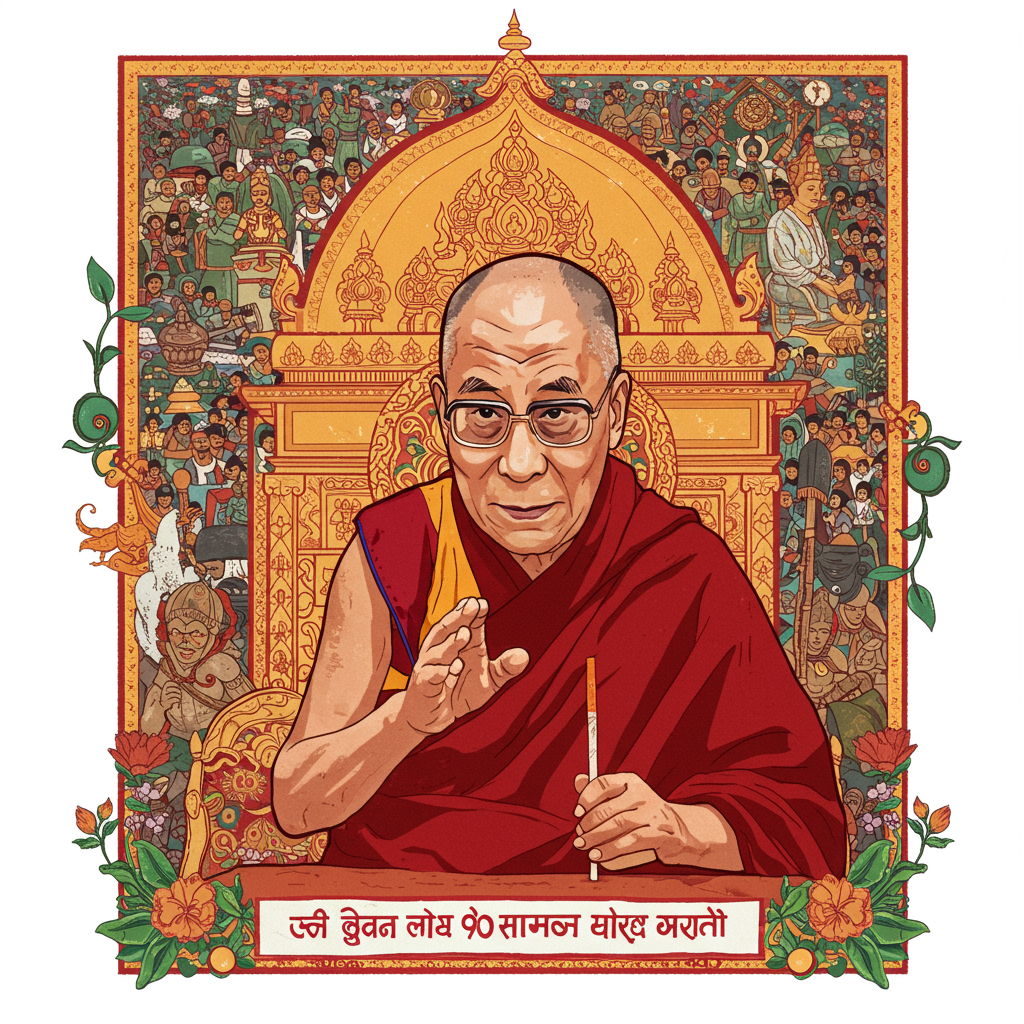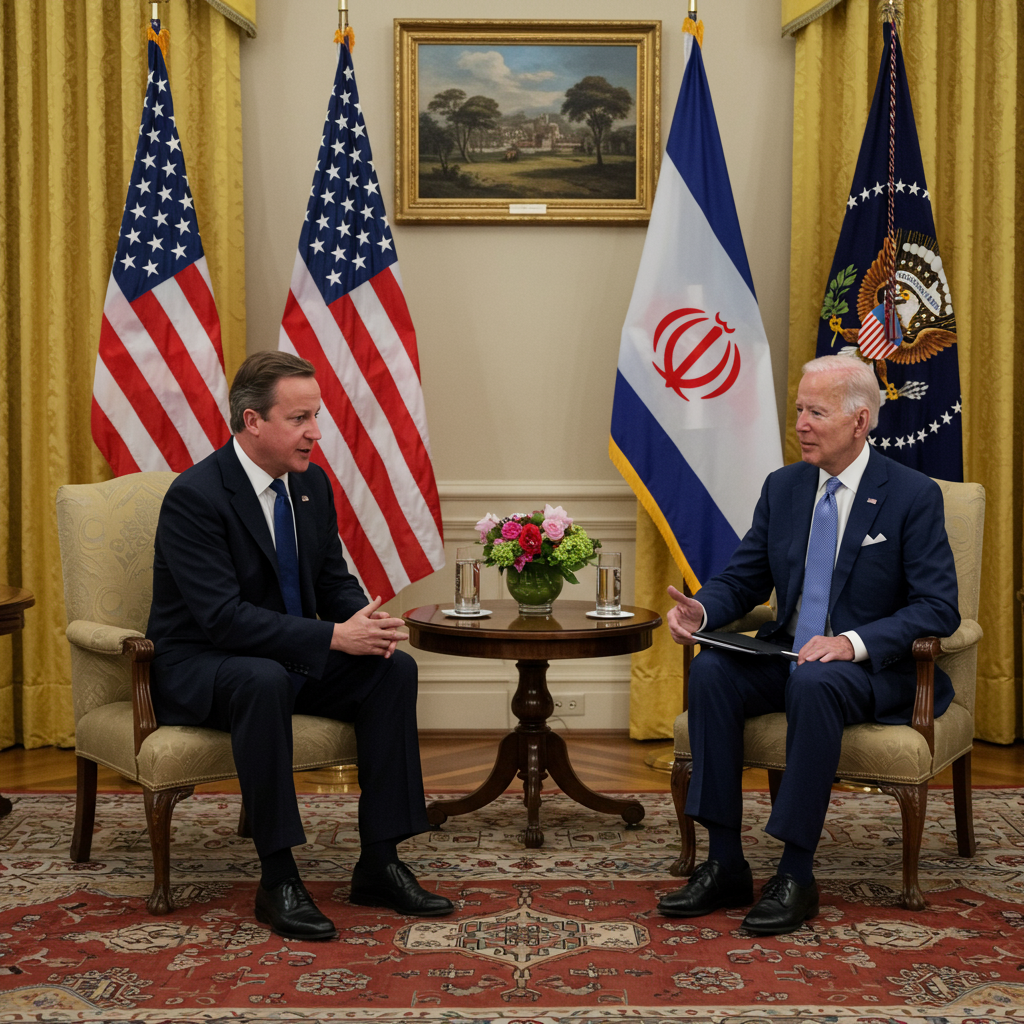A significant milestone was marked in the foothills of the Himalayas as Tenzin Gyatso, the 14th dalai Lama, celebrated his 90th birthday on Sunday, July 6, 2025. The spiritual leader of tibetan Buddhism and a powerful symbol of Tibetan culture and resistance, marked the occasion in Dharamshala, India, his home in exile since fleeing Chinese rule in 1959.
Thousands of devotees, including hundreds of red-robed monks and nuns, gathered in the Himalayan town. They braved persistent rain to pay tribute and join the week-long celebrations culminating in the main event.
Celebrating a Monumental Ninetieth
The birthday ceremony unfolded with traditional Tibetan reverence and cultural expression. The Dalai Lama, dressed in his distinctive robes and a flowing yellow wrap, was escorted to the temple courtyard. Tibetan artists filled the air with the sounds of drums, bagpipes, and the striking of cymbals by senior lamas.
Adding political weight to the spiritual event, Penpa Tsering, head of the democratically elected Tibetan government-in-exile, raised the Tibetan flag. The Tibetan anthem resonated through the gathering, a poignant reminder of a homeland left behind.
Celebrations weren’t confined to Dharamshala. Hundreds of Tibetan refugees, monks, and foreign diplomats in Kathmandu, Nepal, also observed the day. They held Buddhist prayers, chanting, and traditional dances, demonstrating the global reach of the Dalai Lama’s influence and the enduring spirit of the Tibetan diaspora.
Reflections on a Life Dedicated to Service
Addressing the packed audience, the Dalai Lama offered reflections on his long life. He shared a profound sense of purpose and fulfillment. “When I look back on my life, I see that I have not wasted it at all,” he stated. He emphasized his dedication, adding, “I live my life in the service of other sentient beings.”
This sentiment echoes his consistent public persona. He often describes himself simply as “a simple Buddhist monk.” In a birthday message shared online, he reiterated this humble self-assessment. He affirmed his unwavering commitment to his core principles: promoting universal human values and fostering harmony among different religions.
Just one day before his birthday, the spiritual leader shared a hopeful aspiration with his followers. He expressed a personal wish to live until the age of 130.
The Future of the Dalai Lama Lineage: Reincarnation and Succession
Perhaps the most significant announcement capping the week of celebrations addressed the future of the Dalai Lama lineage. Ending years of intense speculation, the Nobel Peace Prize winner confirmed his intention to reincarnate after his death. This declaration puts to rest concerns that he might be the last person to hold the sacred role.
He further clarified his wishes regarding the recognition of his successor. He stated that the future Dalai Lama should be acknowledged in accordance with past Buddhist traditions. Crucially, he has previously asserted that his successor would be born in the “free world,” explicitly meaning outside the control of china.
A Contentious Succession
This stance highlights a deep and ongoing conflict with the Chinese government. China views the Dalai Lama as a dangerous separatist figure. Beijing has repeatedly asserted that it alone possesses the authority to approve the next spiritual leader of Tibetan Buddhism. China has vowed to reject anyone chosen without its direct consent.
Since invading Tibet in 1950 and maintaining control ever since, China has sought to solidify its power. Many exiled Tibetans harbor profound fears that Beijing will attempt to install its own hand-picked successor to the Dalai Lama. They believe this is a strategic move to further suppress Tibetan religious freedom and exert total control over the region’s spiritual life.
The Dalai Lama’s clear statement about reincarnation outside China serves as a direct challenge to Beijing’s claims. It underscores the complex interplay between spiritual tradition, political control, and the aspirations of a people living in exile.
Over Seventy Years in Exile: A Symbol of Resilience
The story of the 14th Dalai Lama is intrinsically linked to the modern history of Tibet. He was thrust onto the Tibetan throne in 1937 at a young age. His leadership coincided with a period of increasing pressure from China. Following a failed uprising against Chinese troops in the 1950s, he was forced to flee his homeland in 1959.
Accompanied by thousands of his followers, he established a government-in-exile in India. For over seven decades, he has resided there, serving as the central figure for the global Tibetan diaspora. His efforts have been instrumental in sustaining a vibrant Tibetan community. He has successfully kept Tibetan culture, language, and identity alive outside of Tibet itself.
Through decades of advocacy and international engagement, the Dalai Lama has become one of the most recognizable individuals in the world. He leads the Tibetan diaspora’s peaceful struggle for greater autonomy and resistance against China’s rule over Tibet. His enduring presence symbolizes hope and resilience for Tibetans everywhere.
Global Recognition and Tributes
The Dalai Lama’s 90th birthday drew well wishes and tributes from prominent figures across the globe. Dignitaries acknowledged his significant spiritual and humanitarian impact.
Indian Prime Minister Narendra Modi sent his wishes, describing the Dalai Lama as “an enduring symbol of love, compassion, patience, and moral discipline.” Similarly, U.S. Secretary of State Marco Rubio praised the Buddhist spiritual leader. Rubio stated that the Dalai Lama “continues to inspire people by embodying a message of unity, peace, and compassion.”
Among the international attendees in Dharamshala was Hollywood actor Richard Gere, a long-time advocate for Tibet. Gere spoke movingly about the spiritual leader’s impact. “He is the most extraordinary man to ever walk on this planet,” Gere remarked, drawing rapturous applause from the gathered crowd. These tributes underscore the Dalai Lama’s global influence reaching far beyond the Tibetan community.
Frequently Asked Questions
Why was the Dalai Lama’s 90th birthday celebration significant?
The 90th birthday of the Dalai Lama in Dharamshala, India, was a profoundly significant event. It marked a major milestone for a global spiritual and cultural leader. The celebration drew thousands of followers and international figures. It also served as a platform for the Dalai Lama to reflect on his life’s work and, crucially, make a major announcement about the future of the Dalai Lama lineage, ending speculation about the continuity of the role.
What key announcement did the Dalai Lama make regarding his reincarnation?
During the week of his 90th birthday, the Dalai Lama confirmed his clear intention to reincarnate after his death. This important statement solidified the continuation of the spiritual lineage. He also specified that the recognition of the next Dalai Lama should follow traditional Buddhist customs. Furthermore, he reiterated his long-held position that his successor should be found and born in the “free world,” outside the jurisdiction of China.
What is the main point of contention regarding the Dalai Lama’s succession?
The primary conflict surrounding the succession of the Dalai Lama is the stark contrast between his wishes and the claims of the Chinese government. While the Dalai Lama desires his successor to be chosen according to tradition and born outside China, Beijing asserts that it holds the sole authority to approve the next spiritual leader of Tibetan Buddhism. China views the Dalai Lama as a separatist and has threatened to reject any choice made without its consent, leading to fears among exiled Tibetans that China will install its own candidate to control the lineage and suppress Tibetan identity.
Conclusion: A Legacy Continues
The Dalai Lama’s 90th birthday was more than just a celebration of age; it was a powerful affirmation of a life dedicated to compassion, peace, and the enduring spirit of Tibet. Surrounded by thousands who cherish his spiritual guidance and symbolic leadership, the Dalai Lama looked back on a life lived in service and looked ahead to the future. His confirmation of reincarnation reaffirms the ancient lineage of Tibetan Buddhism, even as the political realities surrounding his succession remain fraught with tension. As he continues his path in exile, his legacy as a global icon of resilience, wisdom, and the peaceful pursuit of freedom remains as strong as ever.




